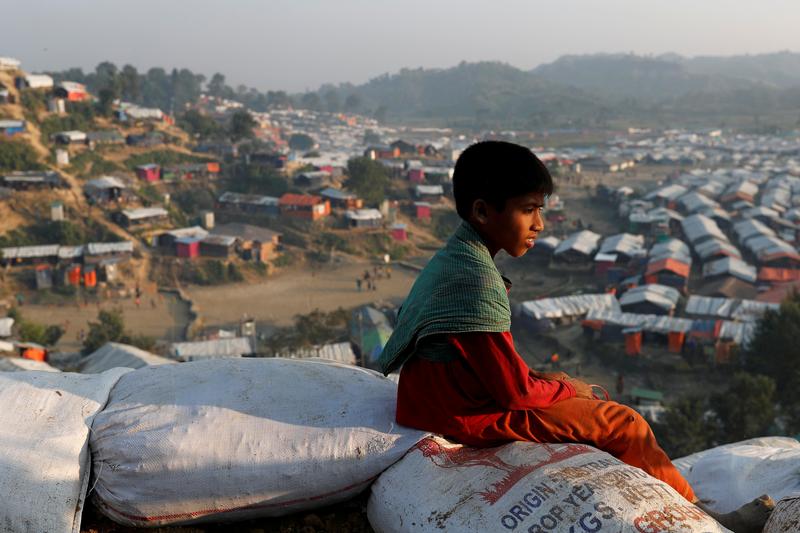Burma signed a tripartite pact with United Nations agencies on Wednesday that will establish “framework” to allow Rohingya refugees from camps in neighbouring Bangladesh to return to their homelands.
A brutal “clearance operation”, launched by the Tatmadaw in the wake of deadly Arakan Army Rohingya Salvation Army attacks on security forces in 2016 and 2017, has sent more than 700,000 Rohingya in search of safety in overburdened refugee settlements across the border.
The Memorandum of Understanding will “establish a framework for cooperation aimed at creating the conditions conducive to the voluntary, safe, dignified and sustainable repatriation of Rohingya refugees to their places of origin or of their choosing,” according to a statement released by the UN Refugee Agency and the UN Development Programme on 31 May.
The MoU does not detail how Rohingya’s without citizenship documents will be assisted. Burma’ Citizenship Law 1982 renders the Muslim minority stateless, yet Naypyidaw says only “verified” Rohingya will be repatriated.
Giuseppe de Vincentiis, UNHCR’s country representative to Burma told DVB on Wednesday that the MoU is a legal document with a “broad scope to touch on a number of issues.”
“The UNHCR stands ready to provide technical support but citizenship is a sovereign act of the government. We are ready to provide any necessary support the government may require,” he said.
While Burma and Bangladesh first announced repatriation plans in November 2017, most Rohingya refugees refused to return without the guarantee of international oversight, fearing for their safety and freedom of movement.
The freshly inked MoU reaffirms recommendations laid out in the final Advisory Commission on Rakhine State report, which include supporting livelihood training and providing freedom of movement to returned Rohingya. The UN says the agreement will allow afford its agencies must-needed access to deliver aid and development within Arakan State.
[related]
Burma has previously denied UN officials access to the troubled zone, barring human rights rapporteur Yanghee Lee from investigating rights violations in late 2017.
In March, Lee told the Human Rights Council in Geneva that the crisis bears the “hallmarks of genocide,” a charaterisation that the Burmese government continues to deny.
Human rights advocates reacted with skepticism to the news, with Burma Human Rights network telling AP, “Is it very politically convenient for the Burmese government to sign this agreement, and also never commit.”
President’s Office spokesperson Zaw Htay was unavailable for comment.



